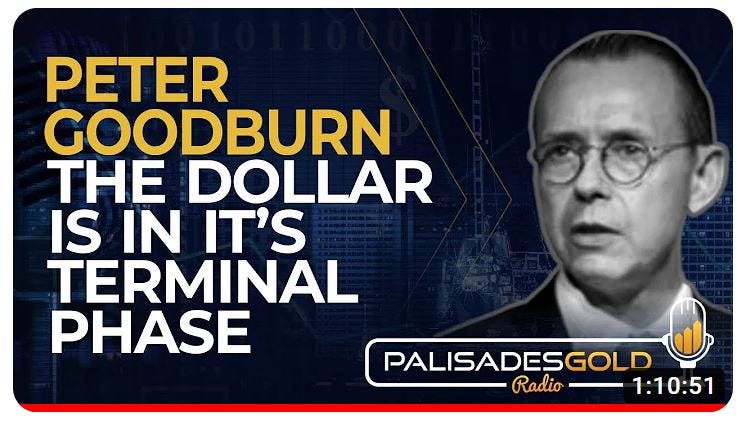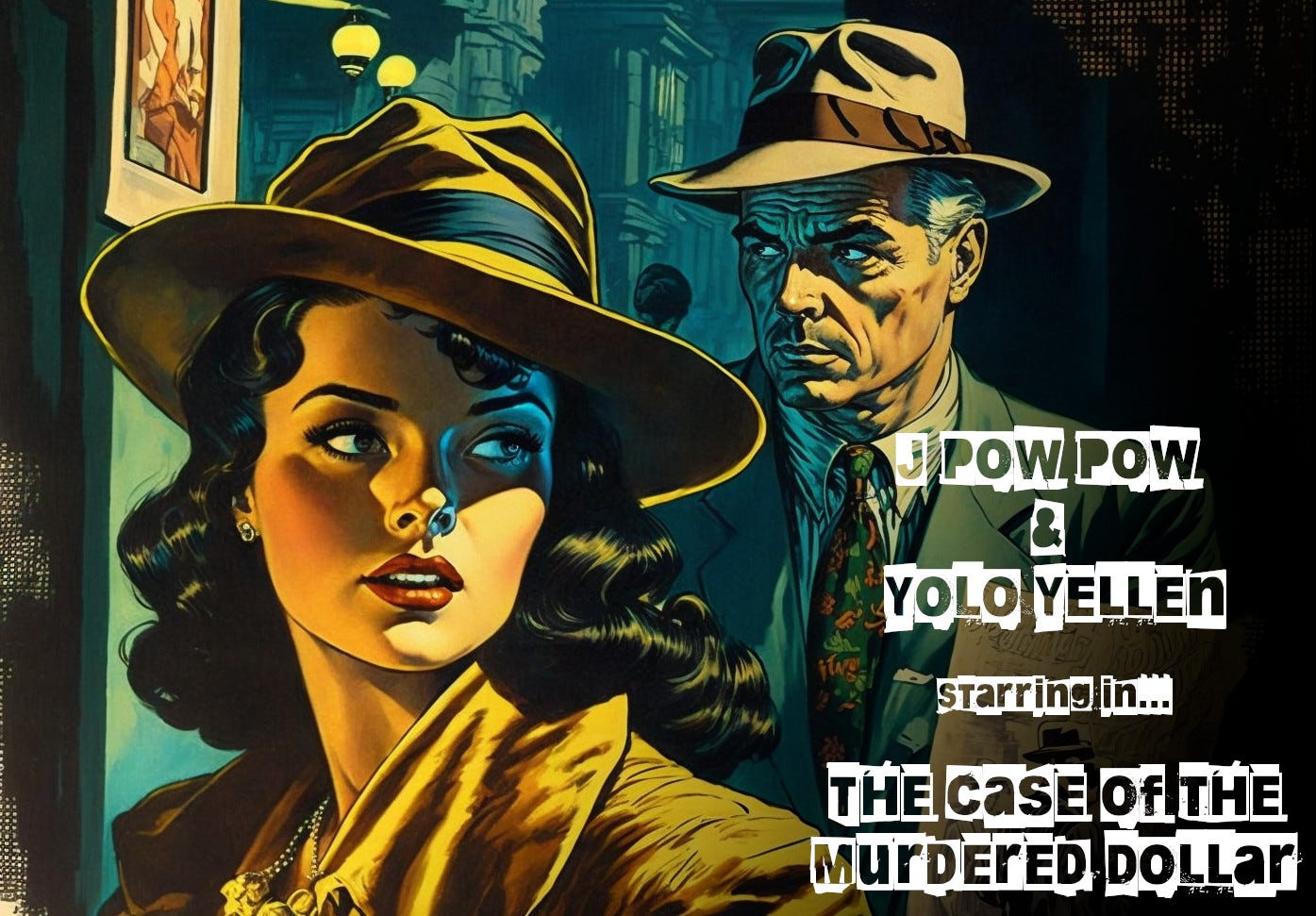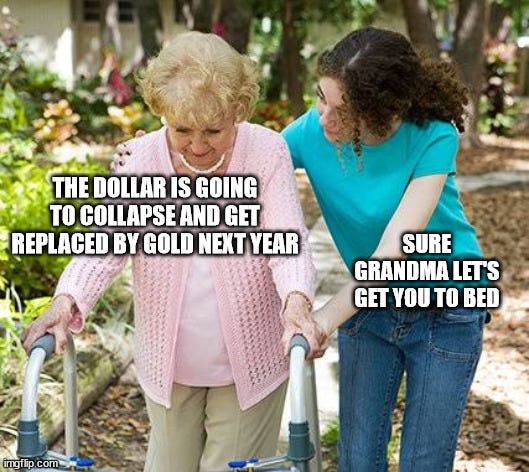Fir$t time?
Rumors of the dollar's death have been greatly exaggerated
Let’s take a moment to consider the EV “revolution,” such as it is. Unless you live in one of the less prosperous regions of Alabama you will have noticed that there’s a coordinated offensive to replace gasoline powered vehicles with their electrically driven counterparts. Why, the UK has said that they’re going to ban all gasoline car sales by 2035. Gosh! That’s laudable ambition, but before we get too far over our skis we should take a step back and analyze the situation with a bit of skepticism.
Imagine that money and the production of new EVs is no problem. I.e. we have unlimited copper, lithium, cobalt, etc. Could we just swap every gas car for an EV and call it the world’s greatest day ever? Well, no… The infrastructure is not in place for that transition. Only 20% of all new cars sold in California are electric yet the state’s grid is already overloaded.
The American electric grid was mostly laid down in the first half of the twentieth century. It’s aged for retirement, not performance. If we swapped America’s quarter-billion cars to EVs and plugged them into the grid the experiment would end horribly... Mass outages, rolling brownouts, boarded up liquor stores, pure chaos! Furthermore, most dealerships are not equipped to service EVs, nor are mechanics trained to work on them. A car doesn’t exist on an island, it’s only as good as the infrastructure that supports it. But wait! Did you forget to take your pills again Mr. Capitalist? Wasn’t this article supposed to be about the dollar?
Right, the dollar. The fundamental misunderstanding that afflicts too many people is that the dollar is the gasoline powered car, when it’s actually the infrastructure.
The dollar is the payment rails that’s been built up over half a century to move value around the world. Despite what some would have you believe, it’s not as simple as swapping in the Yuan or doing some deals in Euros. The dollar is a network of commercial banks, computer systems, nostro and vostro accounts, Eurodollar money lenders, degenerate FX traders, cultivated relationships, Fortune 500 companies and central banks working in unison to keep our global financial system operating relatively smoothly. Fluctuations in the value of the dollar, or a spritz of QE, will not cause this network to fail or be replaced overnight.

For a practical example of this infrastructure let’s turn to a recent article from Jeff Snider. I’ll quote it here at length.
Late in 1984, according to a contemporary account printed in World of Banking, some unnamed fellow from Arkansas slid his VISA card into a new-fangled Automated Teller Machine, or ATM, way on the other side of the planet down under in Australia.
We often think about this transaction solely from the perspective outside the ATM; once the cash is dispensed, enough said. Except, no, that only leads to even more settlement issues as the bank which owned and stocked the Australian machine had to have some way of getting repaid by that bank all the way over there in Arkansas.
This meant even more forms to electronic settlement, equally spanning massive distances though routed through far less material exchanges as this one example. This Sydney bank might request payment via a SWIFT message (another 1970s innovation pieced together from loose conglomerations relying on telecom inventions from the 1930s on up) to some sponsoring member bank of CHIPS in New York.
This CHIPS sponsor would then request payment from whatever other sponsor in the same CHIPS arena who might be correspondent to the one nestled along the Arkansas River.
How then to repay this obligation?
The small bank in Pine Bluff likely doesn’t have the required physical pieces of officially-sanctioned Australian paper - why would it? - so it would have to send a payment request to a dealer bank somewhere out there (though probably in the CHIPS network) which does, or at least has the ability to claim it can get those pieces of currency, exchanging the approved Federal Reserve Notes for whatever number of Australian cash the Sydney bank has requested to receive.
As you can see, there is a globe-spanning system that underpins a simple ATM transaction and none of this is going away just because the Fed does QE or inflation is 7% instead of 2%. Jeff also covers the same information in this video.
The dollar doomsayers
There’s a bottomless pit of pontificators predicting the dollar’s precipitous downfall. However, in my experience these horsemen of the apocalypse don’t usually offer tangible proof to back up their assertions. They appear on podcasts and proclaim that the dollar’s death is self-evident, or that the dollar “deserves” to die and therefore it will. To them I say: I deserve $10 million dollars, does that mean it’s going to happen?
America prints too much money, therefore dollar collapse. As if China, Japan, Britain and the EU never do QE?
America is over-indebted, therefore dollar collapse. Well, some commentators have called China’s real-estate problem the biggest bubble in human history but you don’t hear people calling for the collapse of the Renminbi.
America is the world’s bad guy, therefore dollar collapse. Would you rather live in a world ruled by the glorious communist utopia of China? How about perfect little Japan. Try reading The Rape of Nanking (easily one of the most horrifying books I’ve ever read) and then tell me with a straight face that Japan is the good guy. Can you point to any large nation that has consistently been the center of benevolence and good intentions?
When people talk about the death of the dollar it can feel like mysticism more than anything. Ask these people for the exact bloody details of how this monetary network is going to go up in flames and they’ll be hard pressed to answer. Thankfully, we’re not these people and I’m going to make two predictions of what could actually lead to the downfall of the dollar as a global reserve currency. Hint, it’s not more QE.
World War III
Large wars have historically marked turning points in reserve currency status. For example, the Pound Sterling lost its status as reserve currency after the end of World War II. No matter how much you hate the dollar though, you probably shouldn’t wish for a war to destroy it. If the dollar loses reserve status due to a war it’s not going to be an easy transition. The financial system will break and transactions that we take for granted will cease to exist. Quality of life for everyone on this planet will go down, in some cases way down.
New infrastructure
The first peaceful clue that the dollar might actually be toast is when we hear western governments, financial institutions, regulators, and all of Larry Fink’s golfing buddies discussing the practical steps they’re going to take to re-architect the system from the ground up. Not vague abstractions like, “a better future in 2030,” or whatever the hell they talk about at Davos, but nuts and bolts, boring as hell tech-talk about the multi-year process of instituting a new payments system.
If the financial elites start using detailed language to explain how money will move from a bank account in New Zealand to New York, that will be a big clue that the dollar system is changing.
In all likelihood the new system will run on a centralized blockchain and create a common standard for countries around the world to use. However, given the sustained level of government incompetence we’re currently experiencing I don’t foresee this currency reset happening in the immediate future.
This is the end, but there’s even more to the story…
As always on this Substack we’re trying to discern the world as it is, not as we want it to be. While many people have perfectly viable notions of how we’ll all be better off if the dollar is replaced, we have to acknowledge that the current system is so entrenched that it’s unlikely to end anytime soon.
Hell, I haven’t even brought up all the dollar denominated foreign debt, or the tens of trillions of dollar FX swaps that the BIS just tripped over.
Hey hun, I lost my keys. Have you seen them?
Did you check on top of the microwave?
No, they’re not there. But I did just find $80,000,000,000,000 in dollar FX swaps, is that anything?
Well it’s not nothing, but it’s not going to start your car either.
The next time you hear someone on a podcast talking about how all international trade is going to be settled in gold or Bitcoin, stick around to see if they get into the gritty details of how that new system will work. Probably they won’t go there… More likely is that you’ll hear some high-minded pontificating about too much QE and expensive eggs, while no tech-talk about ATM transactions in Australia.
OK pal, pricey eggs are going to bring down the dollar. You got it!
Every Sunday I publish a recap of all the best finance articles and podcast episodes I’ve found thought-provoking. Here’s the latest edition.
If you’d like to get this free newsletter straight to your inbox just enter your email below 👇









